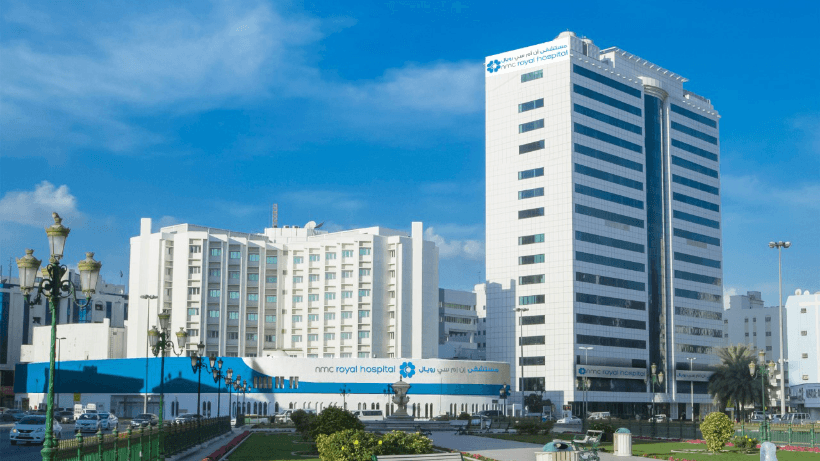
Liver Transplants at NMC Royal Hospital Sharjah
20 Nov, 2023
 Healthtrip
HealthtripIntroduction:
- NMC Royal Hospital Sharjah, a pinnacle of healthcare excellence, is dedicated to providing a spectrum of specialized treatments. Among these, liver transplant procedures stand out as a life-saving intervention, showcasing the hospital's commitment to cutting-edge healthcare. This detailed guide explores the intricacies of liver transplants at NMC Royal Hospital Sharjah, covering procedures, symptoms, diagnosis, risks, complications, and a comprehensive treatment plan.
Most popular procedures in India
Recognizing Liver Transplant Necessity: Key Symptoms
1. Persistent Jaundice:
One of the primary indicators prompting a liver transplant evaluation is persistent jaundice. Patients experiencing yellowing of the skin and eyes due to elevated bilirubin levels should seek immediate medical attention at NMC Royal Hospital Sharjah.
2. Unexplained Weight Loss:
Unexplained and rapid weight loss can be a significant symptom of liver dysfunction. Patients shedding weight without apparent cause may be exhibiting signs of advanced liver disease, warranting further investigation.
Wellness Treatments
Give yourself the time to relax
Lowest Prices Guaranteed!

Lowest Prices Guaranteed!
3. Fatigue:
Chronic fatigue, beyond normal tiredness, is another crucial symptom associated with liver disorders. Patients feeling persistently exhausted, even with adequate rest, should consider consulting specialists at NMC Royal Hospital Sharjah.
4. Abdominal Swelling:
Swelling or distension in the abdominal area, often accompanied by discomfort, can signal liver complications. This symptom requires careful evaluation by the medical team, including specialists in Gastroenterology.
5. Changes in Urine and Stool Color:
Observing changes in urine color (darkening) and stool color (lightening) can be indicative of liver issues. These changes are related to the liver's role in processing waste products and should not be ignored.
6. Itchy Skin:
Pruritus or persistent itching can result from the buildup of bile salts, signaling liver dysfunction. If itching becomes chronic and unresponsive to traditional treatments, it may be a symptom requiring specialized attention.
7. Nausea and Vomiting:
Liver dysfunction can lead to digestive issues, including persistent nausea and vomiting. Patients experiencing these symptoms should undergo a comprehensive assessment to determine the underlying cause.
8. Abdominal Pain:
Pain or discomfort in the abdominal region, especially the upper right side, may be associated with liver problems. This symptom requires careful evaluation by the medical team to determine its origin and severity.
9. Fluid Retention:
Edema or fluid retention in the legs and abdomen is a common symptom of advanced liver disease. It signifies compromised liver function and necessitates thorough examination and diagnosis.
10. Mental Confusion:
Advanced liver disease can impact cognitive function, leading to mental confusion and difficulty concentrating. Any noticeable changes in mental clarity should be promptly addressed by specialists at NMC Royal Hospital Sharjah
Diagnosis at NMC Royal Hospital Sharjah
1. Comprehensive Medical Evaluation:
The diagnosis of a potential need for a liver transplant at NMC Royal Hospital Sharjah initiates with a comprehensive medical evaluation. This involves a detailed assessment of the patient's medical history, symptoms, and an in-depth physical examination conducted by specialists.
2. Blood Tests:
State-of-the-art diagnostic tools, including advanced blood tests, play a pivotal role in evaluating liver function. Specific markers such as liver enzymes, bilirubin levels, and blood clotting factors are meticulously analyzed to provide insights into the extent of liver damage.
3. Imaging Studies:
Advanced imaging studies, including ultrasound, CT scans, and MRI, are employed to visualize the liver's structure and identify any abnormalities. These non-invasive techniques aid in assessing the size, shape, and condition of the liver, guiding the diagnostic process.
4. Liver Biopsy:
In certain cases, a liver biopsy may be recommended to obtain a tissue sample for closer examination. This procedure involves the extraction of a small piece of liver tissue, allowing specialists to assess the degree of damage, inflammation, or scarring.
5. FibroScan:
NMC Royal Hospital Sharjah utilizes innovative diagnostic methods such as FibroScan, a non-invasive technology that measures liver stiffness, providing valuable information about the liver's health and the presence of fibrosis or cirrhosis.
6. Doppler Ultrasound:
To evaluate blood flow to and from the liver, Doppler ultrasound is employed. This diagnostic technique assists in identifying any vascular abnormalities that may impact liver function, guiding the medical team in their assessment.
7. Specialized Consultations:
Collaboration among a multidisciplinary team of specialists, including Gastroenterologists, Hepatologists, and Radiologists, ensures a holistic approach to liver transplant diagnosis. Specialized consultations contribute to a comprehensive understanding of the patient's condition.
8. Evaluation of Living Donor Compatibility:
For cases involving living donors, compatibility assessments are conducted to determine the suitability of the donor's liver for transplantation. This intricate process involves matching blood type, tissue compatibility, and overall health assessments.
9. Multidisciplinary Tumor Board Review:
In instances where liver disease is associated with tumors, a multidisciplinary tumor board reviews the case. This collaborative approach ensures a thorough assessment and consideration of all treatment options, including liver transplant candidacy.
10. Transparent Communication:
Throughout the diagnosis process, NMC Royal Hospital Sharjah prioritizes transparent communication with patients. Specialists communicate findings, potential risks, and the recommended course of action, involving patients in informed decision-making about their healthcare journey.
Liver Transplant Procedure: A Step-by-Step Guide
Step 1: Initial Consultation and Evaluation
The process begins with an initial consultation where the patient meets with specialists at NMC Royal Hospital Sharjah. The medical team, led by experts like Dr. Ali Al Ghrebawi, conducts a thorough evaluation to assess the patient's overall health, liver condition, and eligibility for a transplant.
Step 2: Pre-operative Assessments
Upon determining the need for a liver transplant, the patient undergoes a series of pre-operative assessments. This includes blood tests, imaging studies, and compatibility checks for living donors. The hospital's state-of-the-art facilities and experienced medical staff ensure a comprehensive evaluation.
Step 3: Donor Selection and Compatibility
For living donor transplants, the medical team, in collaboration with specialists like Dr. Zia-ur-rehman Khan, carefully selects and evaluates potential donors. Compatibility tests are conducted to ensure a suitable match, minimizing the risk of rejection post-transplant.
Step 4: Surgery Planning
Once the donor is identified, the surgical team at NMC Royal Hospital Sharjah plans the transplant procedure. The hospital's commitment to precision and safety ensures that each surgery is meticulously organized, taking into account the unique characteristics of both the donor and recipient.
Step 5: Transplant Surgery
The actual transplant surgery is a complex procedure executed with precision by the skilled surgical team. The diseased liver is carefully removed, and the healthy liver is transplanted into the recipient. This critical step is conducted in specialized operating rooms equipped with advanced technology.
Step 6: Post-operative Care in ICU
Following the surgery, the patient is transferred to the Intensive Care Unit (ICU) for close monitoring. The hospital, with 21 ICU beds, ensures that each patient receives specialized care during the initial critical post-operative period.
Step 7: Medication and Rehabilitation
Post-transplant, a comprehensive medication regimen is initiated to prevent rejection and support the healing process. Rehabilitation programs, including physiotherapy, are tailored to individual needs to ensure a smooth recovery.
Step 8: Follow-up Consultations
Continued care is a hallmark of NMC Royal Hospital Sharjah's approach. The patient undergoes regular follow-up consultations to monitor progress, adjust medications, and address any concerns. This sustained engagement ensures a successful and sustained recovery.
Step 9: Patient Education
Throughout the process, patient education plays a vital role. The hospital, with a focus on transparent communication, provides detailed information about post-transplant care, lifestyle adjustments, and potential risks, empowering patients to actively participate in their recovery.
Step 10: Long-term Monitoring and Support
NMC Royal Hospital Sharjah's commitment extends beyond the immediate recovery period. Long-term monitoring and support are integral, with the hospital offering ongoing care to ensure the patient's well-being and the longevity of the transplant.
Risks and Complications in Liver Transplants
1. Infection:
Post liver transplant, there is a risk of infection due to the patient's weakened immune system. NMC Royal Hospital Sharjah prioritizes infection prevention measures, including prophylactic antibiotics, meticulous surgical techniques, and vigilant post-operative monitoring.
2. Rejection:
One of the primary concerns in liver transplants is the potential for rejection, where the recipient's immune system attacks the transplanted organ. NMC Royal Hospital Sharjah employs immunosuppressive medications to mitigate this risk, tailored to each patient's unique needs.
3. Adverse Medication Reactions:
Immunosuppressive medications, crucial for preventing rejection, can have side effects. These may include increased susceptibility to infections, hypertension, or kidney dysfunction. The medical team closely monitors patients, adjusting medication regimens to balance effectiveness and minimize side effects.
4. Vascular and Biliary Complications:
Issues related to blood vessels and bile ducts can arise after a liver transplant. NMC Royal Hospital Sharjah, equipped with advanced imaging and interventional techniques, addresses these complications promptly to ensure optimal organ function.
5. Postoperative Bleeding:
Bleeding during or after surgery is a potential risk. The surgical team at NMC Royal Hospital Sharjah employs advanced techniques and technologies to minimize bleeding during the transplant procedure, and vigilant postoperative care ensures prompt intervention if any bleeding occurs.
6. Clotting Disorders:
Liver dysfunction can impact blood clotting factors. After a transplant, clotting disorders may occur. The hospital's experienced medical team monitors coagulation parameters closely, intervening if any abnormalities are detected to prevent excessive bleeding or clot formation.
7. Organ Failure:
Despite meticulous surgical procedures, there is a risk of primary graft non-function or delayed graft function, leading to organ failure. NMC Royal Hospital Sharjah's intensive care unit and expert medical staff are equipped to address these challenges with immediate and specialized care.
8. Cardiovascular Issues:
Liver transplant recipients may experience cardiovascular complications, including hypertension and heart-related issues. The hospital's multidisciplinary approach involves collaboration with Cardiologists to manage these complications effectively.
9. Metabolic Issues:
Changes in metabolism, including issues like diabetes, may occur post-transplant. The medical team at NMC Royal Hospital Sharjah provides comprehensive postoperative care, including dietary guidance and medications, to manage metabolic issues and promote overall well-being.
10. Long-term Complications:
Long-term complications, such as chronic rejection or recurrence of underlying liver disease, are possibilities. NMC Royal Hospital Sharjah emphasizes ongoing patient care and regular follow-up consultations to identify and address potential long-term complications proactively.
Benefits of Opting for Liver Transplants at NMC Royal Hospital Sharjah
1. Expertise of Renowned Specialists:
At NMC Royal Hospital Sharjah, a team of highly skilled specialists, including Dr. Ali Al Ghrebawi, Dr. Faheem Tadros, and Dr. Zia-ur-rehman Khan, bring decades of collective experience in liver transplantation. Their expertise ensures precision and success in complex surgical procedures.
2. State-of-the-Art Facilities:
The hospital boasts state-of-the-art facilities, equipped with the latest diagnostic and surgical technologies. From advanced imaging tools to specialized operating rooms, NMC Royal Hospital Sharjah provides a technologically advanced environment for comprehensive liver transplant care.
3. Multidisciplinary Approach:
A collaborative and multidisciplinary approach sets NMC Royal Hospital Sharjah apart. Gastroenterologists, Hepatologists, Surgeons, Radiologists, and other specialists work together seamlessly, ensuring a holistic evaluation, treatment, and postoperative care for each patient.
4. Patient-Centric Care:
Patient care is at the forefront of NMC Royal Hospital Sharjah's mission. The hospital's commitment to a personal relationship between patients and medical staff ensures compassionate and individualized care, promoting a supportive and healing environment.
5. Transparent Communication:
Transparent communication is a cornerstone of the patient experience at NMC Royal Hospital Sharjah. The medical team ensures that patients and their families are well-informed about the entire transplantation process, including potential risks, complications, and expected outcomes.
6. Comprehensive Diagnostic Capabilities:
The hospital's diagnostic capabilities are extensive, utilizing cutting-edge tools like FibroScan, Doppler ultrasound, and liver biopsy for accurate assessments. This comprehensive diagnostic approach allows for precise evaluation and personalized treatment plans.
7. Advanced Immunomodulation Techniques:
To manage the risk of rejection, NMC Royal Hospital Sharjah employs advanced immunomodulation techniques. Tailored immunosuppressive medications are administered to each patient, balancing efficacy in preventing rejection with minimizing adverse effects.
8. Dedicated Intensive Care Unit (ICU):
With a dedicated Intensive Care Unit (ICU) equipped with 21 beds, the hospital ensures vigilant postoperative monitoring and immediate intervention if complications arise. This specialized care contributes to the overall success and safety of liver transplant procedures.
9. Inclusive Treatment Packages:
NMC Royal Hospital Sharjah offers inclusive liver transplant treatment packages. These packages encompass pre-operative assessments, the transplant procedure, post-operative care, and follow-up consultations, providing patients with a clear understanding of the comprehensive care they will receive.
10. Proven Track Record and Patient Testimonials:
With over 35 years of impact in the local healthcare market, NMC Royal Hospital Sharjah has a proven track record in delivering successful outcomes for liver transplant patients. Real-life patient testimonials, including those of liver transplant recipients treated by the hospital's specialists, attest to the quality of care provided.
Treatment Package:
Inclusions:
1. Pre-operative Assessments:
- Thorough medical history reviews
- Advanced diagnostic imaging (FibroScan, Doppler ultrasound, blood tests)
- Living donor compatibility assessments
2. Transplant Procedure:
- Precision surgery, including robotic-assisted techniques.
- Deceased donor organ retrieval.
3. Post-operative Care:
- Specialized care in the Intensive Care Unit (ICU)
- Personalized medication management, including immunosuppressive drugs
- Rehabilitation programs, including physiotherapy.
4. Follow-up Consultations:
- Regular check-ups for ongoing monitoring
- Patient education on post-transplant care and lifestyle adjustments
Exclusions:
The treatment package excludes additional medical procedures or treatments not directly related to the liver transplant. Any such procedures will incur separate charges.
Duration:
The duration of the treatment package varies based on individual cases. The medical team closely monitors each patient's progress, covering the entire spectrum from pre-assessment to post-transplant recovery.
Cost Benefits:
NMC Royal Hospital Sharjah prioritizes cost-effective solutions without compromising on the quality of care. Patients can expect value for their healthcare investment, making the hospital a preferred choice for those seeking exceptional and affordable liver transplant services.
Cost and Financial Assistance:
1. Cost of Liver Transplant:
The cost of a liver transplant at NMC Royal Hospital Sharjah varies based on several factors, including the patient's condition, the type of transplant required, and the duration of hospital stay. On average, the cost falls within the range of AED 250,000 to AED 350,000 (approximately USD 68,000 to USD 96,000).
2. Inclusive Components:
The cost of a liver transplant at NMC Royal Hospital Sharjah encompasses various elements, including:
- The transplant procedure itself
- Pre-transplant testing and evaluation
- Medications
- Hospitalization
- Follow-up care
3. Financial Assistance Options:
Recognizing the financial commitment associated with liver transplantation, NMC Royal Hospital Sharjah offers several financial assistance options to support patients:
- Payment Plans:
- Flexible payment plans are available to ease the financial burden on patients, allowing them to manage costs over an extended period.
- Grants:
- The hospital provides grants as a form of financial aid, offering assistance to eligible patients based on their individual circumstances.
- Scholarships:
- Scholarships may be available to qualifying individuals, further contributing to the accessibility of liver transplant services at NMC Royal Hospital Sharjah.
4. Accreditation and Quality Assurance:
NMC Royal Hospital Sharjah holds accreditation from the Joint Commission International (JCI), the leading organization dedicated to enhancing the quality of care in healthcare institutions worldwide. This accreditation underscores the hospital's commitment to maintaining the highest international standards in patient care and safety.
Challenges and Future Outlooks
1. Current Challenges:
1.1. Organ Shortage:
One of the primary challenges in liver transplantation is the limited availability of donor organs. NMC Royal Hospital Sharjah faces the ongoing challenge of addressing the high demand for liver transplants while navigating the scarcity of suitable donor organs.
1.2. Immunological Complexities:
Managing immunological responses and minimizing the risk of rejection pose ongoing challenges. The hospital continues to refine immunosuppressive protocols to balance effectiveness in preventing rejection with minimizing adverse effects on patients' overall health.
1.3. Postoperative Complications:
While advancements in surgical techniques have improved outcomes, addressing and minimizing postoperative complications remains a challenge. Vigilant postoperative care, including prompt identification and management of complications, is an ongoing focus.
1.4. Healthcare Infrastructure:
The ever-evolving landscape of healthcare infrastructure requires continuous adaptation. NMC Royal Hospital Sharjah strives to stay at the forefront of technological advancements and infrastructure development to ensure optimal patient care.
2. Future Outlooks:
2.1. Advancements in Immunotherapy:
The future of liver transplantation at NMC Royal Hospital Sharjah includes exploring advancements in immunotherapy. Tailored immunosuppressive strategies and emerging immunomodulation techniques aim to improve outcomes, minimizing rejection risks, and enhancing long-term graft survival.
2.2. Regenerative Medicine:
Regenerative medicine holds promise for the future of liver transplantation. NMC Royal Hospital Sharjah is poised to explore developments in tissue engineering and regenerative approaches that may offer alternatives to traditional transplantation, reducing the dependency on donor organs.
2.3. Artificial Intelligence (AI) Integration:
The integration of artificial intelligence (AI) into liver transplant procedures is a prospective avenue. AI can assist in diagnostic imaging, surgical planning, and postoperative monitoring, contributing to enhanced precision and personalized patient care.
2.4. Expansion of Living Donor Programs:
To address organ shortage challenges, NMC Royal Hospital Sharjah is actively considering the expansion of living donor programs. Encouraging living donor transplantation can potentially increase the pool of available organs and provide more timely interventions.
2.5. Telehealth Enhancements:
The future includes further enhancements in telehealth capabilities. NMC Royal Hospital Sharjah aims to leverage telemedicine for remote patient monitoring, consultations, and follow-up care, ensuring continued access to healthcare resources for patients beyond geographical boundaries.
2.6. Research Collaborations:
Collaborations with research institutions and participation in clinical trials are integral to NMC Royal Hospital Sharjah's future outlook. Engaging in cutting-edge research allows the hospital to contribute to advancements in liver transplantation and adopt innovative practices.
2.7. Patient-Centric Approaches:
The future of liver transplantation involves refining patient-centric approaches. NMC Royal Hospital Sharjah envisions enhancing patient education, support systems, and personalized treatment plans to ensure a holistic and patient-focused experience.
Patient Stories:
Testimonial 1: Sarah's Journey to Recovery
- "My liver transplant at NMC Royal Hospital Sharjah was a life-changing experience. The medical team, led by Dr. Ali Al Ghrebawi, demonstrated exceptional expertise and compassion throughout. From the thorough pre-transplant evaluations to the precise surgical procedure, I felt in safe hands. The postoperative care in the ICU was vigilant, and the rehabilitation programs aided my recovery. NMC Royal Hospital Sharjah's commitment to patient well-being truly made a difference in my journey to a healthier life."
Testimonial 2: Ahmed's Gratitude for Exceptional Care
- "Choosing NMC Royal Hospital Sharjah for my liver transplant was the best decision. Dr. Faheem Tadros and the entire medical team provided personalized attention from day one. The cost-effective treatment package, inclusive of pre-transplant testing, surgery, and follow-up care, made the process smoother. The hospital's financial assistance options, including payment plans, eased the financial burden. I'm grateful for the quality care and support that defined my entire transplant experience."
Testimonial 3: Aisha's Appreciation for Holistic Care
- "NMC Royal Hospital Sharjah exceeded my expectations in every aspect of my liver transplant journey. Dr. Zia-ur-rehman Khan's expertise was evident, and the advanced technology used in the surgery assured me of the precision of the procedure. The comprehensive treatment package covered not only the surgery but also rehabilitation and follow-up care. The hospital's commitment to patient education empowered me to actively participate in my recovery. I highly recommend NMC Royal Hospital Sharjah for its holistic and patient-centric approach."
- In summary, NMC Royal Hospital Sharjah is a healthcare pioneer, offering premier liver transplant services with a legacy dating back to 1981. Boasting a multicultural, expert medical staff across 28 specialties, the hospital prioritizes patient care and safety. Led by specialists like Dr. Ali Al Ghrebawi, Dr. Faheem Tadros, and Dr. Zia-ur-rehman Khan, the hospital provides transparent, cost-effective treatment plans, supported by numerous success stories. NMC Royal Hospital Sharjah remains dedicated to continuous improvement, ensuring it stands as a beacon of hope and a leader in healthcare excellence.
Related Blogs
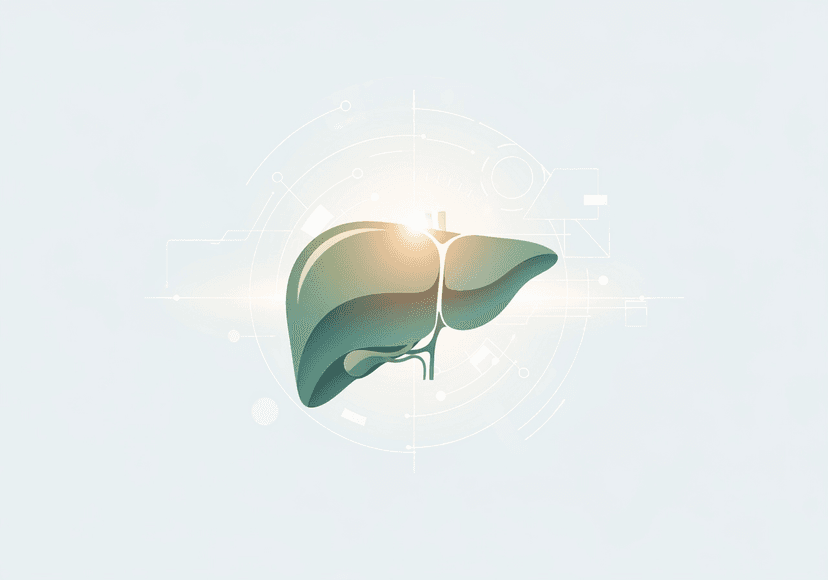
How Healthtrip Ensures Quality & Safety in Liver Transplant Procedures
Detailed guide on liver transplant, featuring doctors, hospitals, risks, recovery,

End-to-End Logistics for Liver Transplant with Healthtrip's Support
Detailed guide on liver transplant, featuring doctors, hospitals, risks, recovery,
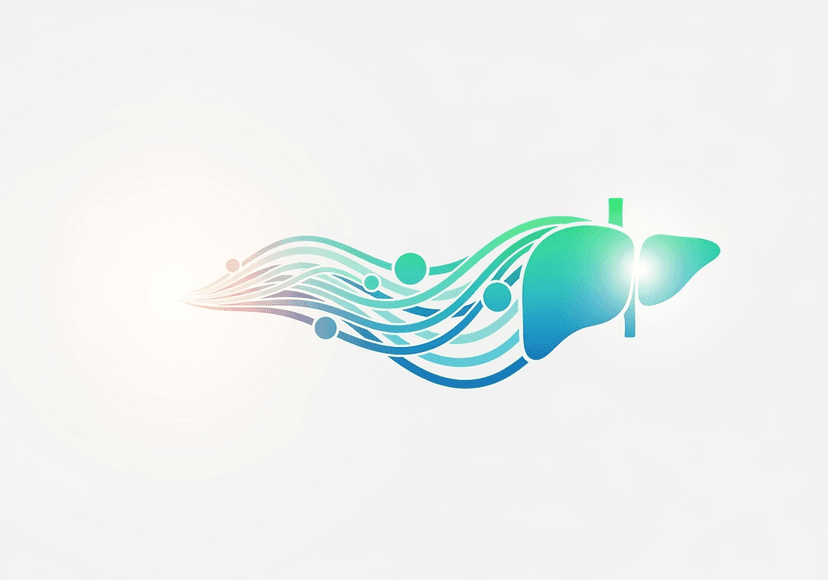
Healthtrip's Care Coordinators: Your Support During Liver Transplant
Detailed guide on liver transplant, featuring doctors, hospitals, risks, recovery,
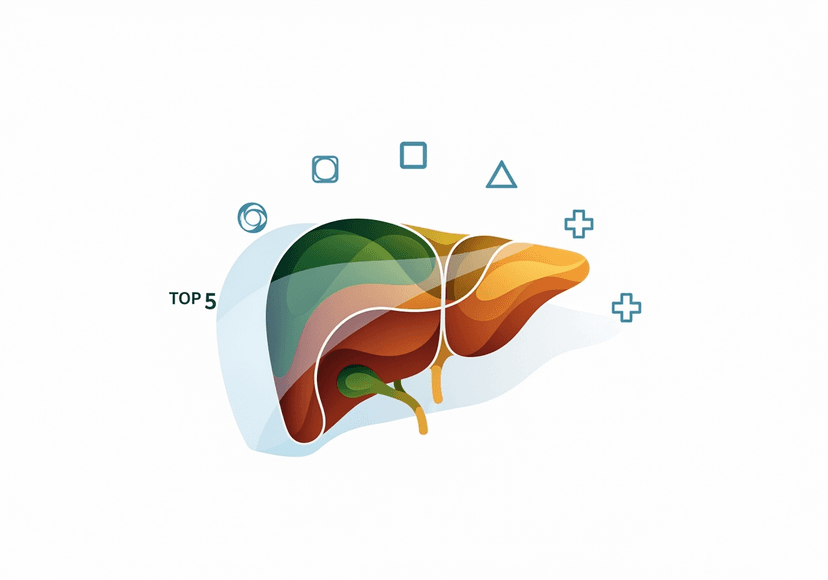
Top 5 Indian Hospitals for Liver Transplant
Detailed guide on liver transplant, featuring doctors, hospitals, risks, recovery,

Post-Liver Transplant Diet and Lifestyle Tips
Detailed guide on liver transplant, featuring doctors, hospitals, risks, recovery,
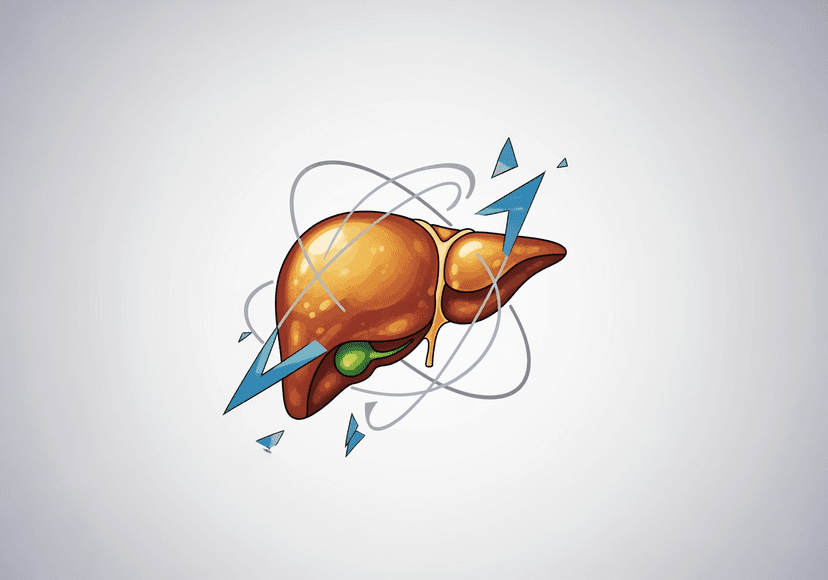
Common Risks in Liver Transplant and How Healthtrip Manages Them
Detailed guide on liver transplant, featuring doctors, hospitals, risks, recovery,










